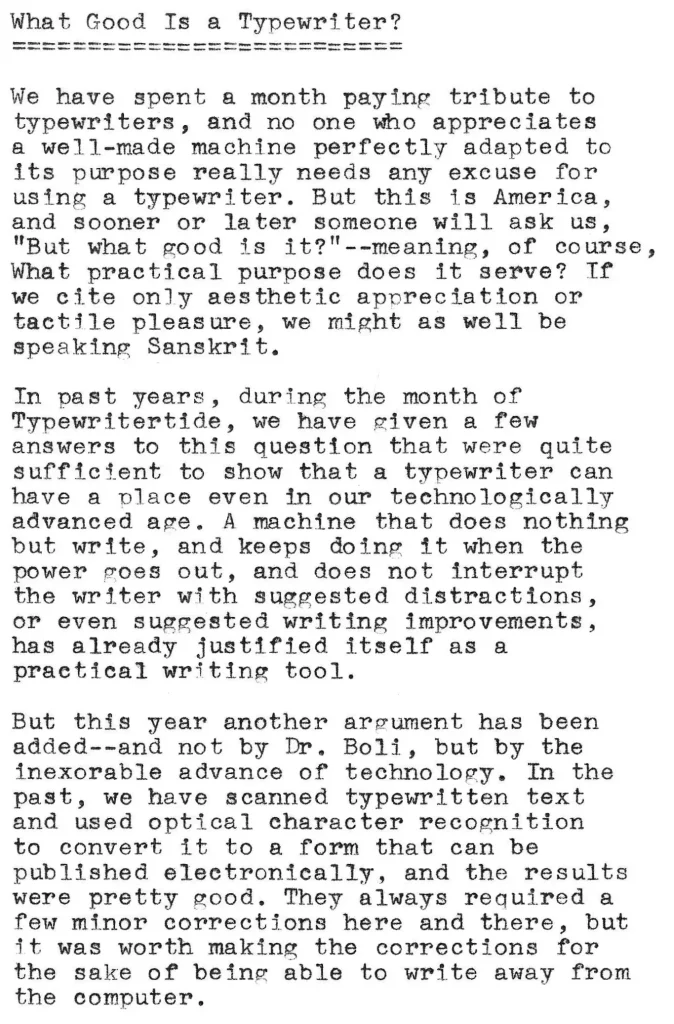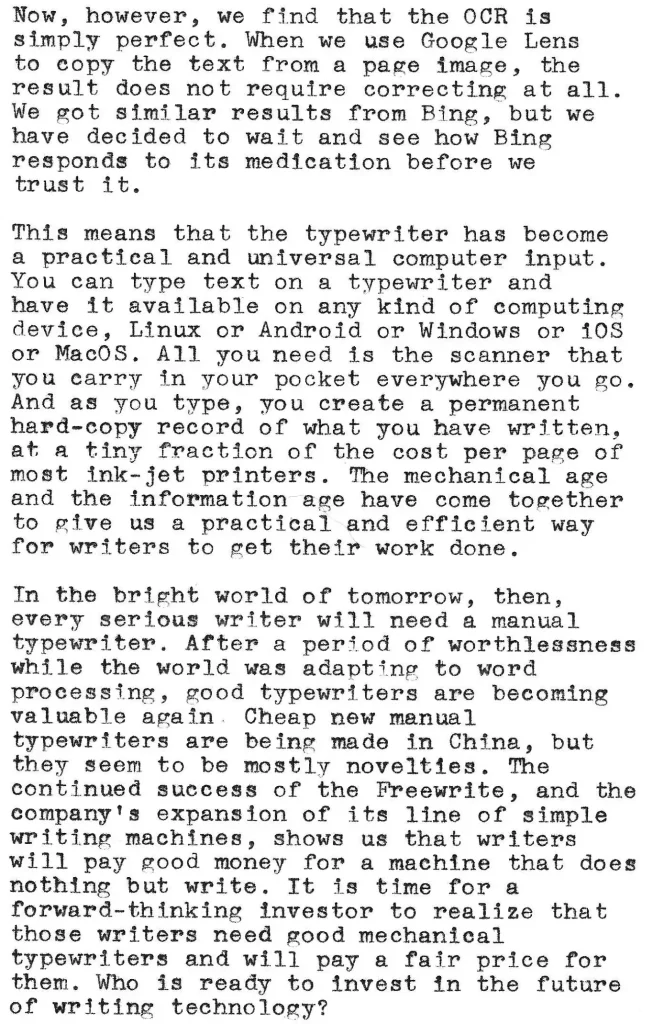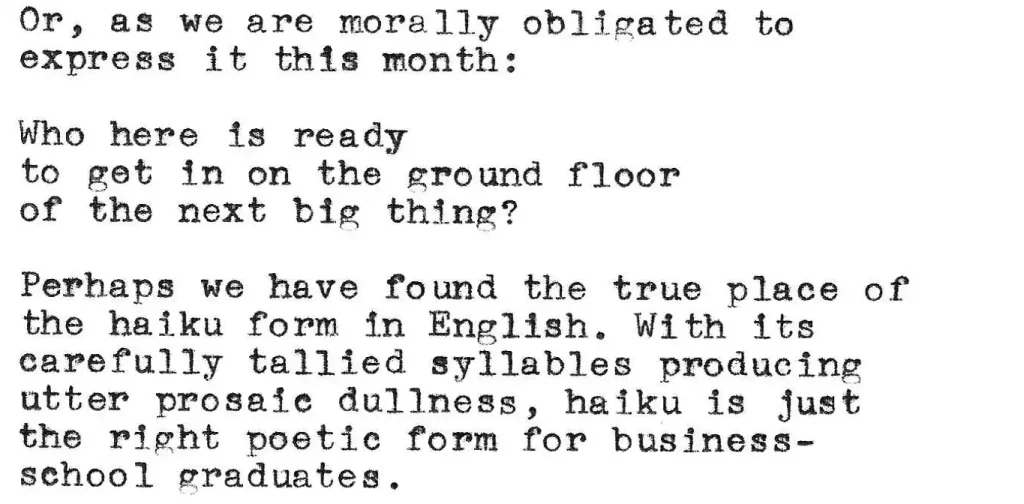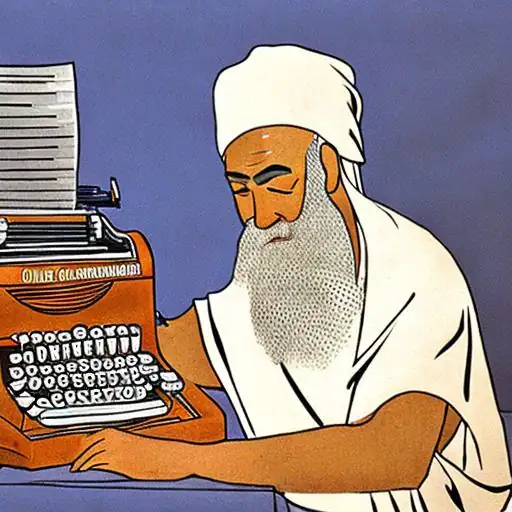


Transcribed below. The typewriter is the Royal HH standard.
What Good Is a Typewriter?
We have spent a month paying tribute to typewriters, and no one who appreciates a well-made machine perfectly adapted to its purpose really needs any excuse for using a typewriter. But this is America, and sooner or later someone will ask us, “But what good is it?”—meaning, of course, What practical purpose does it serve? If we cite only aesthetic appreciation or tactile pleasure, we might as well be speaking Sanskrit.
In past years, during the month of Typewritertide, we have given a few answers to this question that were quite sufficient to show that a typewriter can have a place even in our technologically advanced age. A machine that does nothing but write, and keeps doing it when the power goes out, and does not interrupt the writer with suggested distractions, or even suggested writing improvements, has already justified itself as a practical writing tool.
But this year another argument has been added—and not by Dr. Boli, but by the inexorable advance of technology. In the past, we have scanned typewritten text and used optical character recognition to convert it to a form that can be published electronically, and the results were pretty good. They always required a few minor corrections here and there, but it was worth making the corrections for the sake of being able to write away from the computer.
Now, however, we find that the OCR is simply perfect. When we use Google Lens to copy the text from a page image, the result does not require correcting at all. We got similar results from Bing, but we have decided to wait and see how Bing responds to its medication before we trust it.
This means that the typewriter has become a practical and universal computer input. You can type text on a typewriter and have it available on any kind of computing device, Linux or Android or Windows or 10S or MacOS. All you need is the scanner that you carry in your pocket everywhere you go. And as you type, you create a permanent hard-copy record of what you have written, at a tiny fraction of the cost per page of most ink-jet printers. The mechanical age and the information age have come together to give us a practical and efficient way for writers to get their work done.
In the bright world of tomorrow, then, every serious writer will need a manual typewriter. After a period of worthlessness while the world was adapting to word processing, good typewriters are becoming valuable again Cheap new manual typewriters are being made in China, but they seem to be mostly novelties. The continued success of the Freewrite, and the company’s expansion of its line of simple writing machines, shows us that writers will pay good money for a machine that does nothing but write. It is time for a forward-thinking investor to realize that those writers need good mechanical typewriters and will pay a fair price for them. Who is ready to invest in the future of writing technology?
Or, as we are morally obligated to express it this month:
Who here is ready
to get in on the ground floor
of the next big thing?
Perhaps we have found the true place of the haiku form in English. With its carefully tallied syllables producing utter prosaic dullness, haiku is just the right poetic form for business-school graduates.
